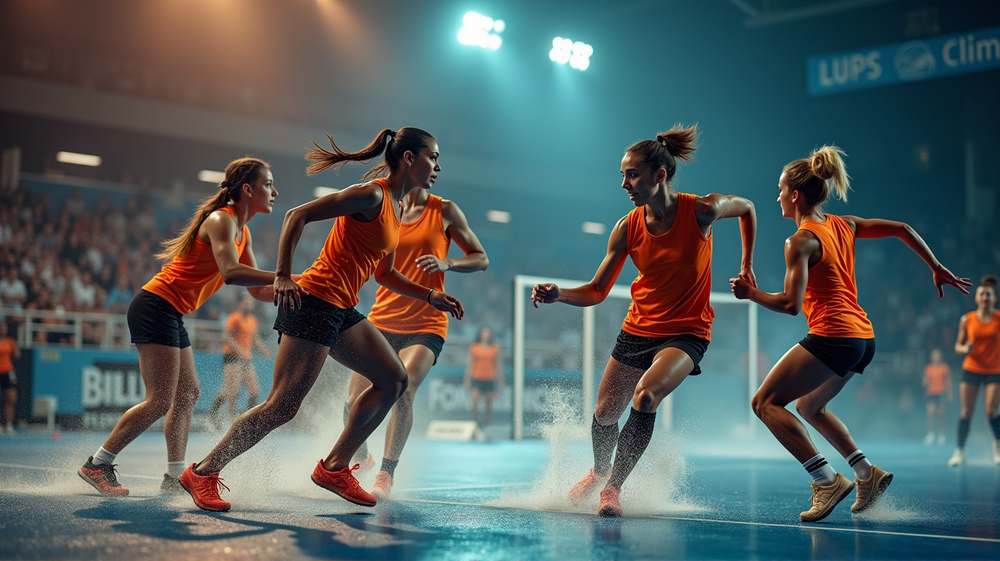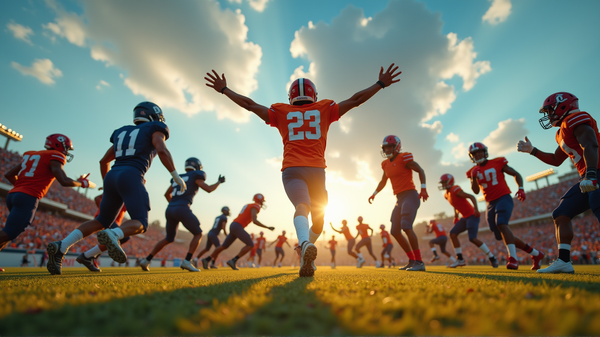UN's Urgent Call to Break Gender Barriers in Sports
The world of sports is witnessing a significant plea from the United Nations (UN) for transformative change. UN High Commissioner for Human Rights, Volker Türk, delivered a compelling speech, urging member states to confront the gender disparities plaguing women’s sports. Despite the growing attention and accolades awarded to female athletes, entrenched inequalities persist, and Türk seeks immediate action to bridge these divides.
The Unseen Struggles of Women Athletes
In stark contrast to their male counterparts, women athletes continue to face lower salaries, diminished opportunities, and scarce representation in leadership roles. The financial chasm is particularly glaring: while male football players bask in average annual earnings of \(1.8 million, their female counterparts grapple for wages between \)10,900 and $24,000. Such disparities stifle the athletic advancement of women and obstruct their right to be competitive sports figures.
Discrimination Beyond the Field
Discrimination rears its head not only through income but also representation. Women are vastly underrepresented in clubs, federations, and governing bodies, receiving less media coverage and fewer leadership roles. Unfortunately, these challenges are further compounded for women of African descent, who often face racist narratives and hate speech. As stated by Türk, it is imperative to dismantle these barriers to enable a genuinely inclusive sporting world that values all athletes equally.
A Call for Action
The responsibility to eliminate these disparities does not lie with international bodies alone. Member states are tasked with implementing anti-discrimination measures and safeguarding athletes against harassment and violence. Legislation supporting gender equality in sports must be coupled with stringent checks that ensure thorough investigation of any grievances.
Role of Sports Organizations
Sports organizations and event organizers are also urged to reflect on their influence and align with the UN Guiding Principles on Business and Human Rights. These entities must evaluate the impact of their operations on women’s rights and adopt strategies to mitigate any adverse effects. According to JURIST Legal News, aligning with these principles proposes an organization-wide cultural shift towards genuine equality.
The Broader Implications
The UN’s vision for equality in sports transcends the playing field, offering a beacon of hope for social and economic advancement. By actively promoting equality, sports can captivate societal values and foster change, making it essential to cultivate a terrain where every young girl can aspire to athletic greatness, without the specter of inequality looming overhead. Through global cooperation and an unwavering commitment, the UN seeks to ensure that opportunities for women and girls in sports are abundant and driven by merit rather than gender.
The Path Forward
As history illustrates through continuing international studies, the journey to parity has been long and winding. Yet, it is not devoid of progress. Various NGOs and coalitions are highlighting the widening gaps and rallying for equal pay and representation. The path forward demands unwavering resolve, as echoed by Türk, to inspire a world where sports embody fairness and opportunity for all athletes, irrespective of gender.
Engaging with these changes starts at home and within local sports entities. Together, by confronting the inequalities within sports, we can challenge societal norms and empower future generations to thrive in arenas that celebrate all athletes equally.




